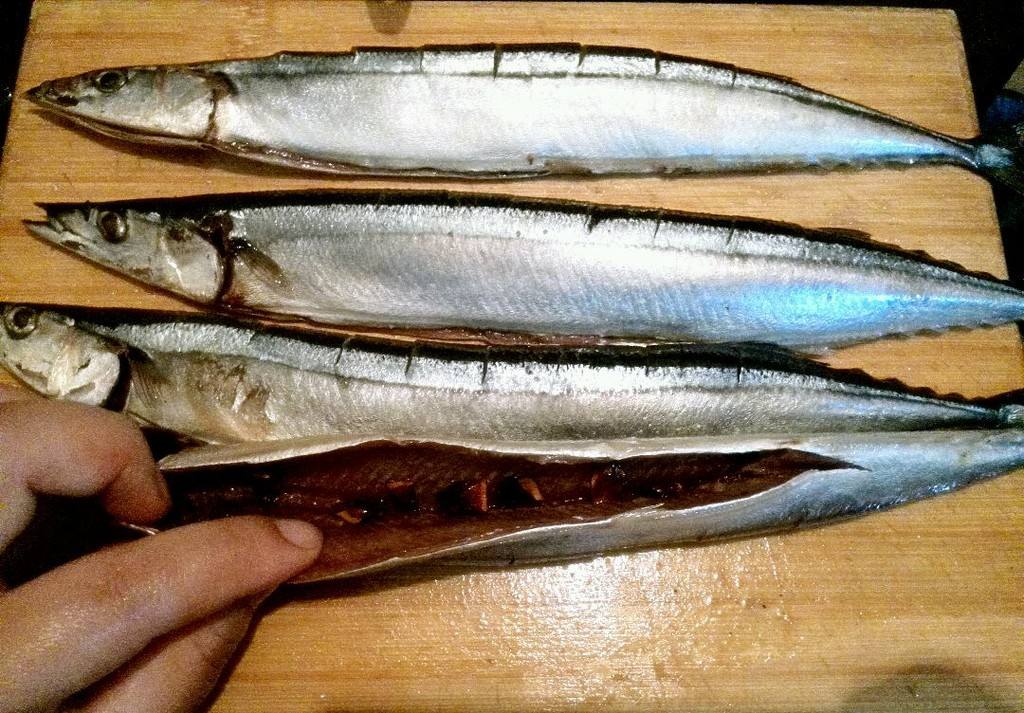Japanese people love saury very much, and although the price is high, everyone loves it. As japan has caught less and less saury in recent years, the price of saury has risen year after year, rising to 5,000 yen a catty last year. So why is saury so popular in Japan but not so many people in China?

Saury is a regular at Chinese supper stalls, a roasted saury with a charred yellow, blackened skin, firm flesh, and drizzled with a little lemon juice, even if there are more thorns, it does not affect the foodie's love for them. However, the Love of Chinese people seems to stop here, so it is difficult to find it in other dishes. Although saury is more common in China, its main production area is not in China, but in Japan.
The Japanese even eat saury as an autumn ceremony, using them for barbecue, soup, and saury rolls, saury tempura, etc., and various dishes are overwhelmed. The Chinese who have always regarded themselves as foodies, in the face of such a set of thousands of advantages in one of the fish, in addition to having a place in the barbecue industry, basically not welcomed by the mainland crowd, and even some netizens frankly said that in addition to barbecue white gifts, they do not want it. Why? Is saury really that bad?
In fact, saury is also sold in many coastal places, and the price generally does not exceed ten yuan a catty, although the price is very low, but it is basically difficult to sell. There are several reasons why people don't like to eat:
First, the taste, many people who have eaten saury feel that it has a bitter taste, if it is not handled well, the fishy smell is also more, many people are not accustomed to eating. In addition, many Chinese families tend to eat fish more like river fish. If you want to cook saury, this step takes a lot of time, such a tedious process is not as convenient as choosing local fish.
Second, there is catch. China is not a major saury producer and can allocate much less catch each year than In Japan. According to Japanese aquatic experts, the total annual resources of saury in the North Pacific amount to 800 tons, and the total annual catch in Japan alone reaches 300 tons. Then there's South Korea and Russia, and China has a smaller share, which also makes a lot of the saury we eat so far mostly frozen frozen fish.
Third, it is the question of size. China's diet pays attention to no fish and no table, but the common fish dishes on the table are basically a whole carp, grass carp, sea bass, etc., the size of this fish is relatively large, more atmospheric, and the size of the saury is too small, if it is on the table, it will appear more shabby, after all, many people still pay attention to the face project.
Frozen fish affects people's judgment of the taste of saury, directly making the Chinese people lose the idea of tasting early, and finally the alternative fish species are diverse. The mainland marine fishery resources are rich, freshwater fishery resources are not bad, can choose a variety of fish species, such as carp, tilapia, perch, etc., so its appearance is not proud, plus the general taste of saury is not popular with the Chinese people.
Due to the superior geographical environment, the population of saury in the Sea of Japan was very large earlier, but with the increase in mining, the number of saury gradually dried up, and even once there was no fish, which also led to the price of Japanese saury becoming more and more expensive.